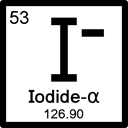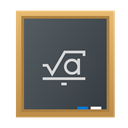Top Beaker Alternatives for Data Science and Research
The Beaker Notebook stands out as an innovative open-source tool for research and data science, celebrated for its advanced UI and polyglot capabilities. It uniquely allows a single notebook to seamlessly integrate code from multiple languages like Python, R, JavaScript, Scala, and Julia, thanks to its autotranslation feature. However, as powerful as Beaker is, the diverse needs of data professionals often lead to the search for alternatives that might offer different features, broader community support, or a more tailored user experience. This guide explores the best Beaker alternatives available today.
Top Beaker Alternatives
If you're looking to explore other robust, interactive, and language-agnostic environments for your data science and research workflows, these alternatives to Beaker offer compelling features and strong communities.

Jupyter
Jupyter is a widely popular, open-source, interactive environment for data science and scientific computing, supporting over 40 programming languages. It's an excellent Beaker alternative due to its extensive platform availability (Free, Open Source, Mac, Windows, Linux, Web, Cloudron) and features like browser-based operation, interactive visualization, literate programming, and server-side execution with multiple language support. Its robust ecosystem makes it a top choice for many.

IPython
IPython serves as an interactive shell for the Python programming language, offering enhanced introspection, additional shell syntax, syntax highlighting, and tab completion. As a Free and Open Source tool available on Mac, Windows, and Linux, it's a solid Beaker alternative, particularly for those whose primary focus is Python-based data analysis and development, providing a powerful command-line experience.

nteract
nteract is a desktop application designed for developing rich documents that integrate prose, executable code in various languages, and images. It's a user-friendly Beaker alternative, offering a clean interface and robust features for creating interactive notebooks. It's Free and Open Source, available on Mac, Windows, and Linux, and builds upon the Jupyter ecosystem.

Kajero
Kajero focuses on interactive JavaScript notebooks, enabling users to create attractive, responsive, and interactive documents. It's a Free and Open Source web-based Beaker alternative, also available for Mac, Windows, and Linux, making it ideal for web-centric data visualization and analysis without extensive setup.

µCalc
µCalc (mucalc) is a multi-user math web application that leverages math.js for in-browser parsing and Node.js with Socket.io for real-time synchronization. As a Free and Open Source web and self-hosted Beaker alternative, it stands out with features like calculators, LaTeX support, multi-user support, real-time collaboration, and a unit converter, making it great for collaborative mathematical exploration.

Observable Notebooks
Observable is a powerful web-based platform for interactive data analysis, visualization, and communication through notebooks. While not open source, its free web tier makes it accessible as a Beaker alternative, particularly for those who prioritize a streamlined, collaborative, and highly visual environment for JavaScript-based data work.

iodide
Iodide is an open-source notebook programming environment specifically for the web, allowing users to combine JavaScript, Markdown, CSS, and external resources to communicate ideas effectively. As a Free and Open Source web and self-hosted Beaker alternative, it offers flexibility for web-focused computational essays and interactive reports.

Cantor
Cantor functions as a front-end for various powerful mathematics and statistics packages, integrating them within the KDE Platform to provide a user-friendly, worksheet-based graphical interface. As a Free Beaker alternative primarily for Linux users, it offers syntax highlighting and a robust worksheet environment for computational tasks.

Bl.ocks
Bl.ocks (pronounced “Blocks”) is a simple web viewer for sharing code examples hosted on GitHub Gist, particularly popular for D3.js visualizations. While not a full notebook environment, this Free web platform can serve as a lightweight Beaker alternative for sharing and viewing interactive code snippets and data stories, especially for web-based presentations.

Polynote
Polynote is a multi-language notebook designed for data analysis, emphasizing reproducibility and seamless data sharing between code elements. As a Free, Open Source, and self-hosted Beaker alternative, it offers a compelling option for those requiring robust data flow and consistent results across different programming languages within their notebooks.
Choosing the right Beaker alternative depends heavily on your specific workflow, preferred programming languages, collaboration needs, and platform requirements. Whether you prioritize open-source flexibility, extensive language support, real-time collaboration, or specific visualization capabilities, the alternatives listed above offer a diverse range of features to suit your data science and research endeavors. Explore each one to find the perfect fit for your next project.